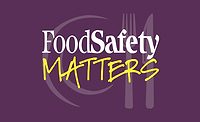Ep. 10. Mike Taylor: “We’re in a whole new world now”

Mike Taylor is a senior fellow at the Meridian Institute and an advisor to the Food and Society Program at the Aspen Institute. His primary interests are food safety globally and food security in Africa and other developing regions.
Until June 1, 2016, Mr. Taylor was Deputy Commissioner for Foods and Veterinary Medicine at the U.S. Food and Drug Administration (FDA). He led the comprehensive overhaul of FDA’s food safety program Congress mandated in the Food Safety Modernization Act of 2011 and oversaw all of FDA’s food-related activities, including its nutrition, labeling, food additive, dietary supplement and animal drug programs.
Mr. Taylor served previously at FDA as a staff attorney and as Deputy Commissioner for Policy (1991–1994) and at the U.S. Department of Agriculture as Administrator of the Food Safety and Inspection Service and Acting Under Secretary for Food Safety (1994–1996). Prior to joining FDA in July 2009, he spent nearly a decade in academia conducting food safety, food security and public health policy research, most recently at George Washington University’s School of Public Health. He also served during that time as a Senior Fellow at the Partnership to Cut Hunger and Poverty in Africa, where he conducted research on U.S. policies affecting agricultural development and food security in Africa.
In the private sector, Mr. Taylor founded the food and drug practice and was a partner in the law firm of King & Spalding. He also was vice president for public policy at Monsanto Company and served on the boards of the Alliance to End Hunger and RESOLVE, Inc. He is currently a board member of STOP Foodborne Illness and Clear Labs, Inc. He is a graduate of Davidson College and the University of Virginia School of Law.
Subscribe on Apple Podcasts | Stitcher | Google Play | Android
In this episode, we speak to Mike Taylor about:
- His role at the USDA Food Safety and Inspection Service following Jack-In-the-Box, when he advocated for Hazard Analysis and Critical Control Points (HACCP) for meat and poultry and Escherichia coli O157:H7 being labeled an adulterant.
- His tour of the country in support of Food Safety Modernization Act (FSMA) implementation and how comments effected rulemaking
- How after a 10-year break, academic kibitzing about implementing a modern risk-based system led to his tenure at FDA.
- His advocacy for a single food agency and HACCP for all foods.
- How he believes we’ve turned the corner from reaction to prevention in the age of FSMA.
- His work on food safety and security issues in Africa.
- His role at the Aspen Institute and oversight of the next wave of gene technology.
- How the conversation has changed from what we should do to how we are going to do it.
- His thoughts about the important role of food safety culture.
Also in the Episode:
Checking in with Adriene Cooper, senior event manager for the Food Safety Summit on their Food Safety Theater programming at this years’ Process Expo.
News and Resources Mentioned in this Episode:
FDA Approves New Labels for Peanut-Containing Foods
FSMA Produce Safety Rule Now Final
Link to Food Safety Magazine’s articles on FSMA
FDA Delays Water Testing Compliance
Fixing FSMA’s Ag Water Requirements
Presenting Sponsor:

SafetyChain suite of food safety and quality management solutions - Supplier Compliance, Food Safety, Food Quality, CIP Optimization & Material Loss - provide the program visibility, data intelligence, and tools needed to more effectively manage your food safety and quality operations.
With SafetyChain, companies throughout the food supply chain are more effectively reducing risks, controlling costs, and ensuring everyday compliance
Learn How SafetyChain Can Help Your FSQA Operations Achieve Better Results
Watch this video for a quick intro to SafetyChain’s FSQA solutions
Access SafetyChain Overview datasheet
Looking for a reprint of this article?
From high-res PDFs to custom plaques, order your copy today!



